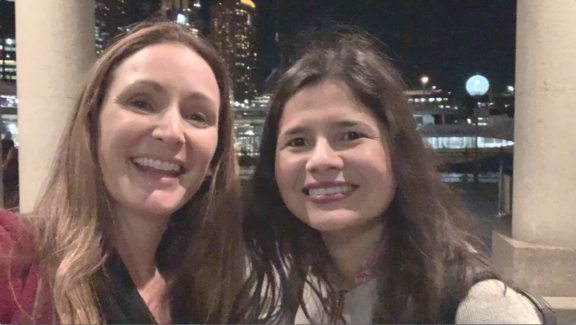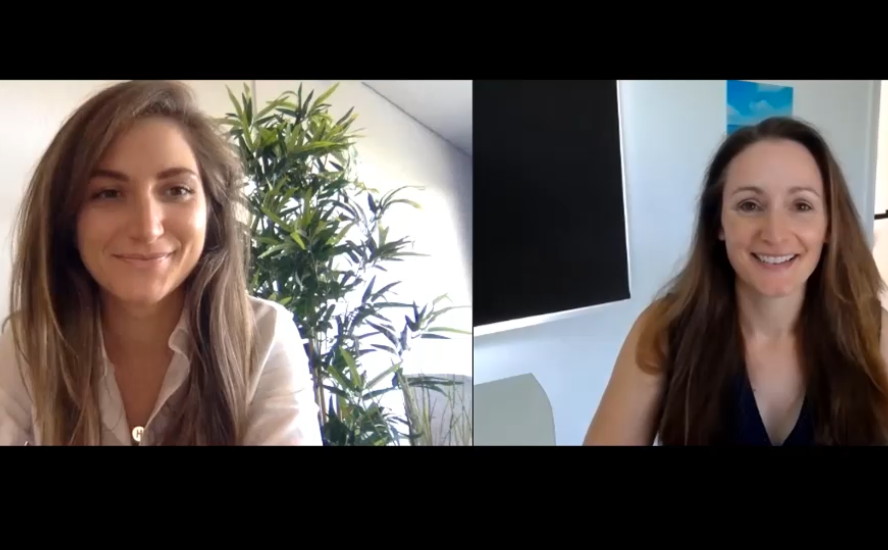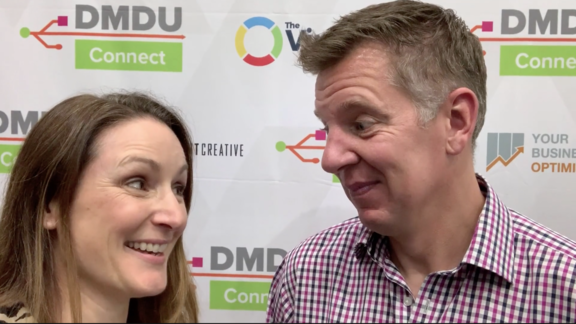Aleyda Solis is an award-winning international SEO expert, and helps businesses all over the world prepare for changes in online search.
Recently, I was at the Search Marketing Summit, and had the privilege to talk with her on the topic of Voice Search. With the rise of the mobile voice assistants like Siri and Hey Google, and home assistant devices like Alexa and Google Home, voice search is growing proportion of searches that are made.
We’re always looking to future-proof our websites and be ahead of the trends, which is why I wanted to ask Aleyda for her thoughts and advice about what we should be doing as website owners to be prepared for this new phase of Search Engine Optimisation.
Liz: Today I’m here with Aleyda Solis who is an international SEO expert. And we have just seen her presentation on Voice Search which is really fascinating. So, can you give us just the quick rundown of what we should be thinking about in terms of voice search going forward and how we can optimize?
Will voice search change SEO forever?
A lot of people say that, “Oh SEO is going to die because of this”, or “80% of the searches will be voice-based in 2020”. I can recognize that our behaviour to search through voice has already started to change. However, I believe that this will change for the input not for the output.
This is because it’s very natural for any of us to search in a much more natural way by voice such as “Oh I want to buy a blue T-shirt”, or “I want to buy red pants” etc. But, in order to make a proper decision of which pants or the shirt I want to buy, I need that visual output. This is the customer journey.
So yes, voice input, but visual output. I think that even Google (if we see a little bit of the trends going on) is aware of this because of the smart display that they are releasing now. And it is not only the Google Home device, but now there is also this tablet-like device that we will use to talk but Google and get the visuals too. Visuals plays a very important role in the natural way that users behave and tend to acquire information. But I see that it has a place in our bigger role as a conversational context.
What do we do to prepare for voice search?
Liz: So, as website owners, is there anything we should be planning for? Or is there anything we need to do? Or do you think we just let that progress naturally?
Aleyda: I think that the best way that we can address this specific need is to identify the patterns that our users already use to search for our information. And you will find that you will tend to identify that these are much more conversational. The Six W’s. Right? They are much more long-tailed conversational type of searches.
Liz: The questions – the What, the Where, the Why.
Aleyda: Indeed. Searching as if we were talking with our friend, or asking for advice to our friend, or asking that assistant, etc. Search is more conversational, so we need to structure our content to provide answers to this type of area in a very natural way.
There’s a structured data that Google just confirmed yesterday at Google I/O. How to structure data. Which which makes sense because these are informational type of queries. Then on the other hand, Google also published (3 years ago) the guidelines for best practices, for voice friendly information.
Liz: Yes, Alyda shared that with us, so that’s very cool.
Aleyda: Indeed, so they provide specific characteristics. So besides being informative, it should be short, it should properly answer the question, it should be easily spoken, the elocution of the content etc, that is important.
Is there structured data for voice search?
Liz: Yes. So, what is that structured data? That is speakable structured data?
Aleyda: Yes. That is already supported directly for publishers. But if you go and take a look at the criteria that Google provides (and the recommendations that they provide when using that structured data) you can see right away how to structure your content typical size to be prominent enough, informative enough, and the content is grammatically well structured to provide a proper response and answer that can be easily spoken by the assistant.
Liz: Yes, that was my biggest takeaway from your talk. So, we have to write and actually read it out-loud to ourselves to see if Google Home etc., could actually say what we wrote, without sounding silly.
Aleyda: Yes! So this is the problem – you tend to write as you speak. And in my case I speak very fast and use super-long phrases etc. This is not good in this type of context. So, I would say that it’s important to think on the context of voice search as natural trend that will happen. Being – voice as an input, not necessarily only as an output. That is important. And then, to make our content what it should have been always been.
Liz: Right, great content.
Aleyda: Easy to understand, easy to read, relevant enough and address the natural needs that we all have and we will tend to search in a much more natural way, to voice.
Liz: Fantastic – thank you so much for sharing that with us Aleyda! And if you want to learn more from Aleyda, join her weekly SEO program, Crawling Mondays at https://www.aleydasolis.com/en/crawling-mondays/




